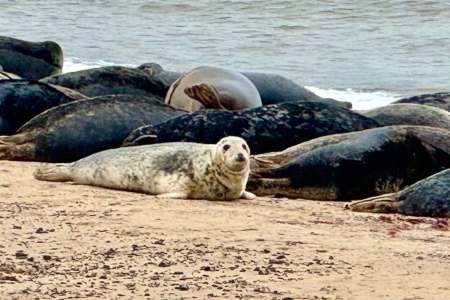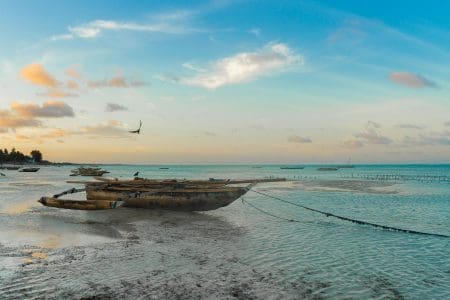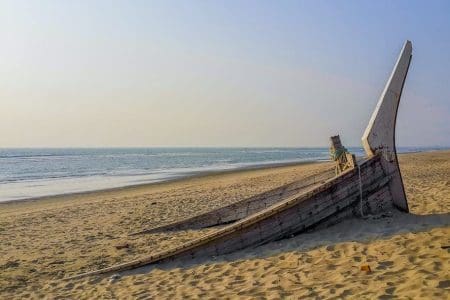Mark Bibby Jackson talks with Sarah Bajc, Owner and Operator of Camaroncito EcoResort & Beach, in Panama.
When Sarah Bajc discovered Camaroncito she fell in love with the undeveloped stretch of beachfront. Around the bay, which is called “little shrimp” due to its shape, was virgin rainforest, and the only inhabitants were Panamanians who lived in the local fishing villages.
Together with husband Ernesto Berrocal, she bought 16 acres of land here six years ago, returning regularly for holidays. It was only when the former businessperson and teacher from Michigan retired that they opened Camaroncito EcoResort & Beach in January 2023.
Their intention was to create a genuinely local ecotourism experience, which benefited the local community and allowed guests to reconnect with nature.
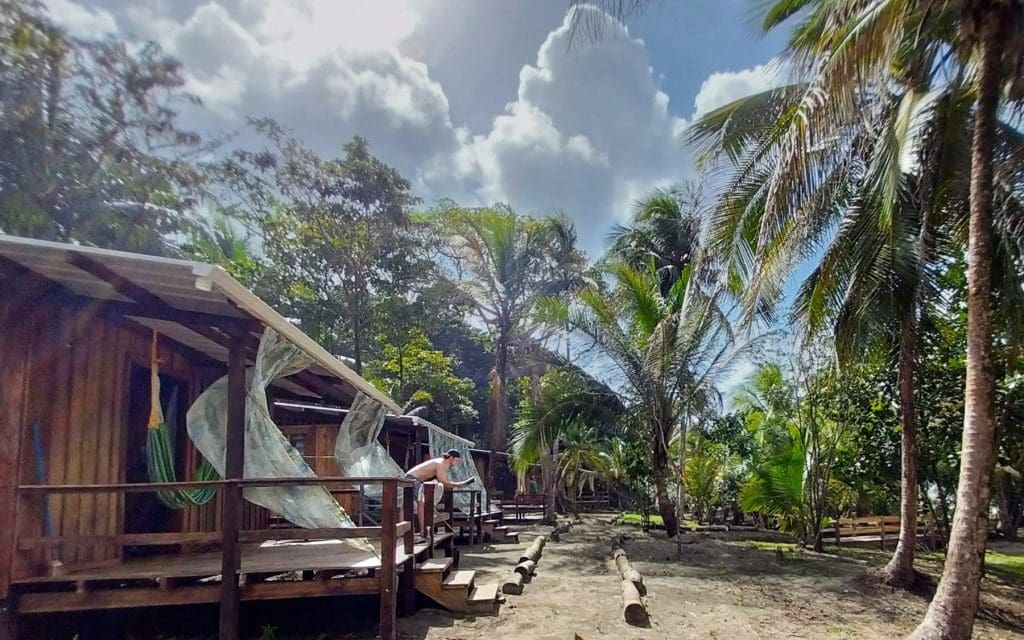
Camaroncito EcoResort: Getting Back to Nature
Although only a three-hour journey from Panama City, the final hour of which is by boat, Camaroncito EcoResort offers guests seclusion.
“We are the only development besides five totally off the grid fishing villages along a 100-kilometre length of Panama’s central Caribbean coast,” Sarah explains, “so the entire area is still natural, authentic and pristine.”
There are four beachside cabanas next to a 600-metre stretch of soft sand beach cove, backed by thousands of acres of rainforest, which guests can wander through along trails, guaranteed to have the nature all to themselves.
“This combination means there is abundant wildlife all around us: several varieties of monkeys, sloths, deer, wild pigs, wild cats, rodents of many sizes, hundreds of bird species, and uncountable other critters,” Sarah adds.
Although the Camaroncito experience is about getting back to nature, this does not mean that guests have to rough it. The wooden cabanas, predominantly made of local wood from felled trees, have solar-powered hot water showers, fans and refrigerators.
In addition to solar energy, Camaroncito uses filtered water collected from the local river, which is professionally tested. Waste is also managed ecologically.
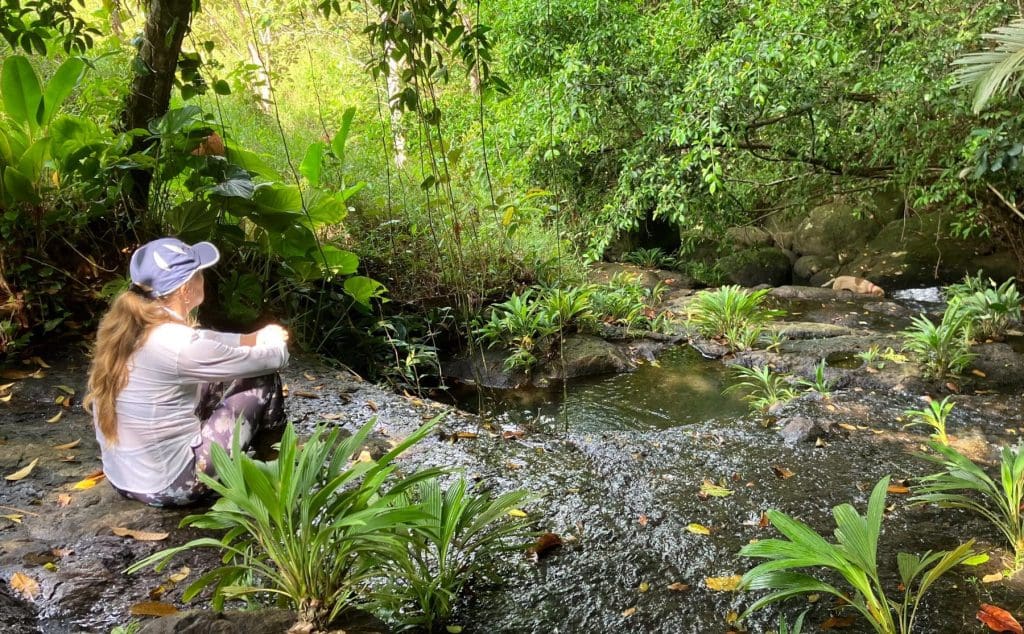
Keeping It Local at Camaroncito EcoResort
“If you want a local experience, it’s a lot of work,” Sarah confides in me as we chat on Zoom. The kitchen focuses on locally sourced ingredients with Sarah doing the cooking herself.
Sarah estimates that about 90 percent of their ingredients come from within Panama and 30% from the local community. They also have their own fruit and vegetable farm.
Although the concept of Camaroncito is for people to disconnect from our super-fast lives, the ecolodge still offers a high-speed satellite service for guests. There are also plenty of more active options for guests who do not wish to just lounge on the beach all day.
“We want guests to enjoy the hammocks scattered around the property, and to freely wander the many rainforest trails and neighbouring beach coves,” says Sarah. “We allow guests to challenge themselves physically and turn their minds off: learn to ride a horse or boogie board the waves, practice yoga as the sun rises over the ocean, open a coconut with a machete, or dance salsa under a starlit sky.”
Supporting the Community
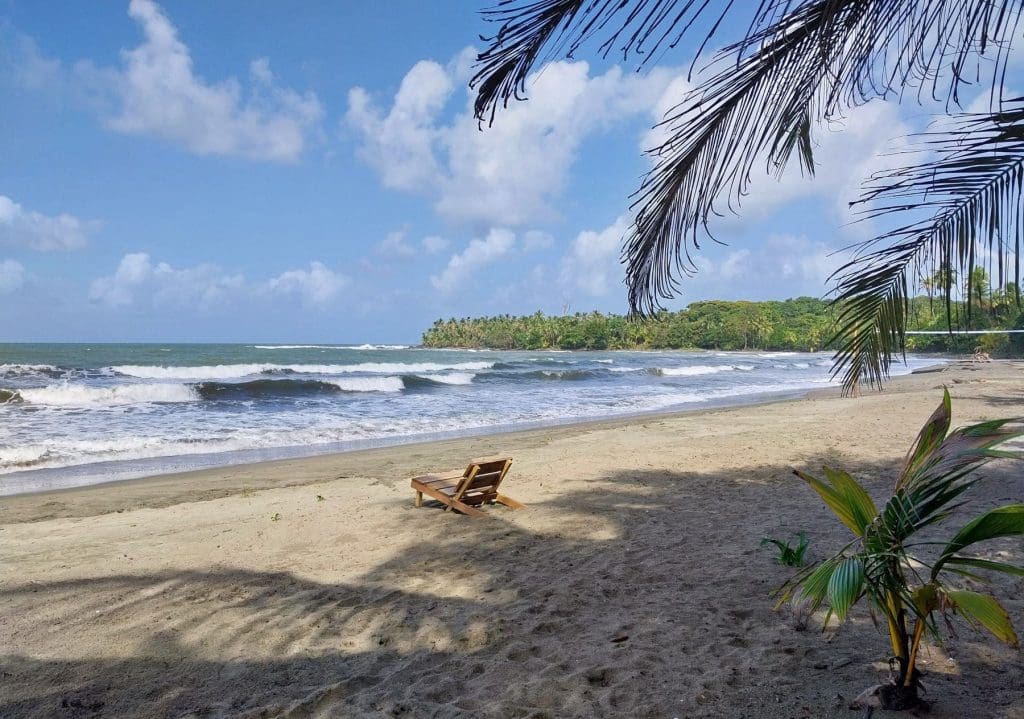
A key component is to support the local community.
“Although we are very new and very small, we hope to have a measurable impact on our local community and broader society through supporting responsible tourism and community development,” says Sarah.
They have helped to fund the construction of a new dirt road to link the villages, which previously were only connected by boat. In addition to sourcing food locally, they also employ only local labour.
Joining the Climate Friendly Travel Registry
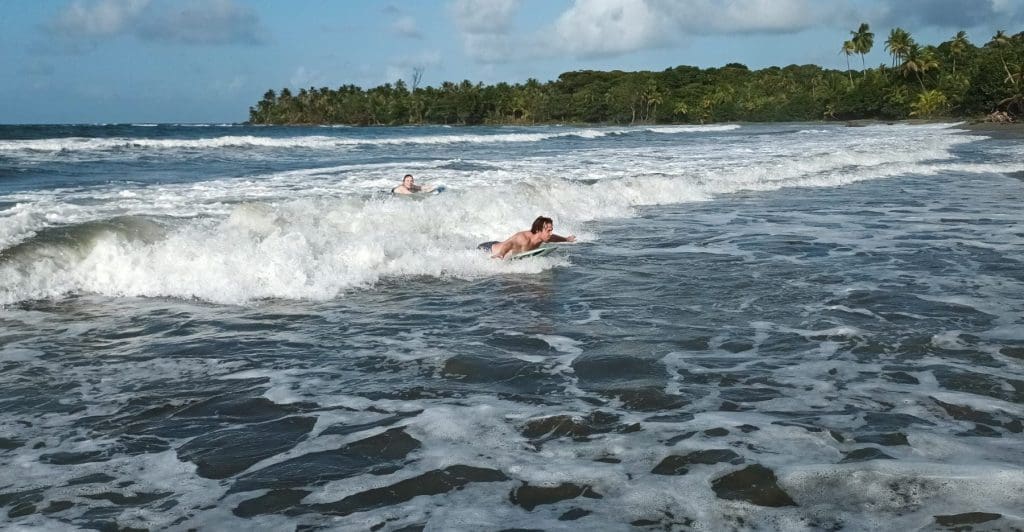
In February 2023, Camaroncito EcoResort joined the Climate Friendly Travel Registry.
“We are excited to be part of this global movement towards carbon reduction and sustainability and encourage other travel and tourism industry players to join this initiative,” says Sarah.
She hopes that through membership of the CFTR, she can raise the awareness of ecotourism in Panama.
“Panama is a beautiful country with wonderful natural resources. We want to push eco-travel,” she says. “Panama has been slow in getting on that bandwagon. Costa Rica is far ahead.”
Part of her mission is to change the public perception of ecotourism within the country, and make it financially stable. For this, she is hoping to learn from other members of the Climate Friendly Travel community; to learn from their lessons.
Although she believes that there is untapped value in the country’s vast natural resources, she admits that currently they are making no profit. “We do this because it is the way we live.”
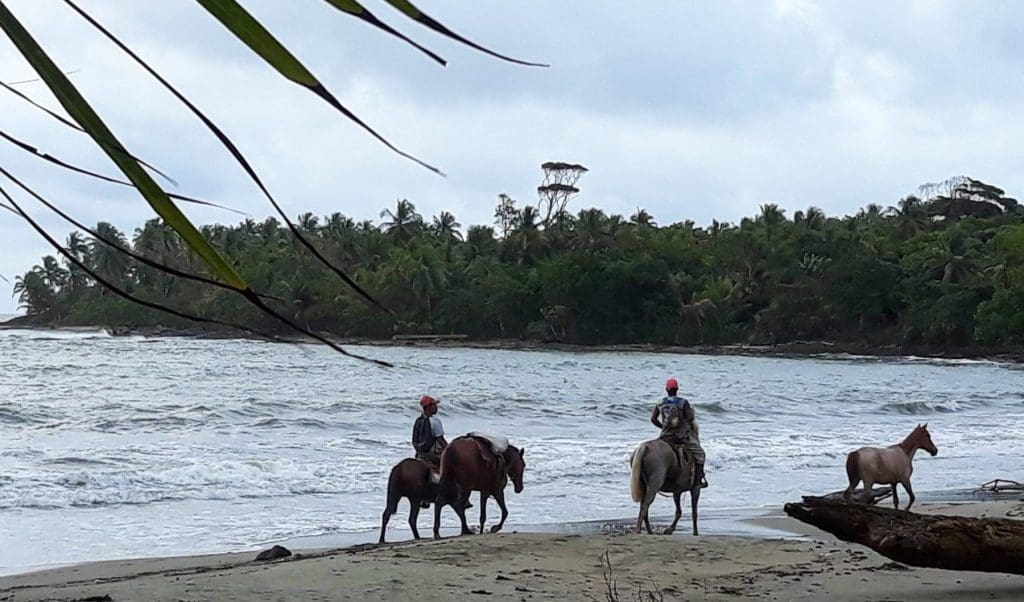
Reconnecting with the Future at Camaroncito EcoResort
According to Sarah, Camaroncito EcoResort will stay small. Currently, there is a capacity for eight people to stay at the eco-resort, two in each of the beachfront cabanas. That will in the future expand to 16 with the addition of two larger cabanas, but no more. The idea is to stay small to allow people to have a unique interaction with the nature all around them.
“Our generation lived outside,” she says. “Kids today live in front of a screen. Maybe we need to reverse that trend and reconnect with nature.”
All images supplied by Camaroncito EcoResort. For more travel Panama advice go to the official Panama tourism website.
